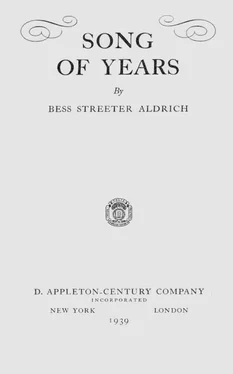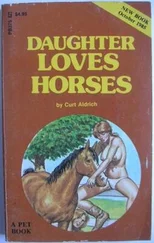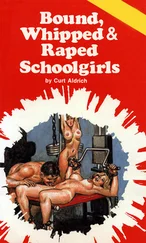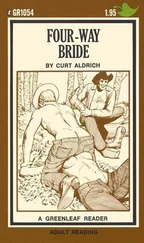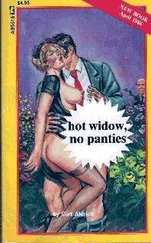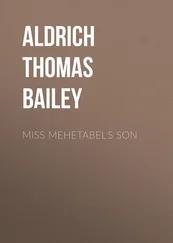Henry was, as Wayne Lockwood had noted, a silent serious fellow. Twenty-five years old this summer, he had never looked at a girl, just worked along steadily as though there were nothing in the world but the task in hand. All that he said now, plodding by the side of the oxen, was “Hello, young ’uns,” and “Anything new at home?” He had been gone only thirteen days. With the best of time it took five or six days to go each way, and another one to unload the grain and collect the merchandise for Mullarky’s store. Often it took many more. There were spongy swamplike places on the trail, a bad one near Delhi, creeks to cross with a great deal of creaking of the wagon wheels, the Wapsipinicon to ford, and if there chanced to be black Iowa mud, the oxen could not make more than ten or twelve miles a day. Often some unusually bad place would find a dozen outfits bunched together, pulling each other out.
Yes, there had been a lot of things happen. Both girls answered at once, in Martin fashion, Henry to gather from the chattered duet the remnants of news. Mr. Miller and Mr. Hosford were going to start a bank in Prairie Rapids in one corner of the general store. Pa said they were talking of platting the part of the settlement that was on the east side of the river, too, and that to save his neck he couldn’t see why a town couldn’t stay all on one side of the river or the other and folks not always have to wade, swim, or ferry between the two sides.
Then there was the joke about the drinking over at Sturgis Falls, each girl breaking in on the other to tell Henry this funny thing. One night ten days ago four men got drunk over in Sturgis Falls and when they sobered up the town official had set them to grubbing stumps out of Main Street. Now they say that if you get drunk and get out early in the morning and of your own accord go to work on the Main Street stumps, you don’t even get hauled up before the town officer—and Tom Bostwick says you can hear axes going early most any morning. There was a joke on Mr. Mel Manson, too. That buckwheat he’d planted up on the prairie north of him, after he’d sent Ed Armitage to break the sod, would be the last up there he’d ever plant, for the land was bought a’ready and he’d once said it would never be sold, that he could always depend on it being public. Pa said last night that a’ready about a tenth of the land in the county was taken.
They gave their news a mannish slant, knowing that Henry cared nothing about their new bead rings or the finding of the biggest grape-vine swing they had ever run across down in the timber.
And then it was Henry’s turn. He said in Dubuque they’d asked him all about the six thousand Injuns that had come rampaging down the Valley from Clear Lake way, killing and scalping all the settlers.
They all had a good old laugh at that, with Henry saying that bad news always got worse the farther away from home it got, and he guessed good news got belittled. After that he lapsed into silence until they noticed that his bearded lips were drawing down in the peculiar way they always did when he was pleased about something.
“What is it, Henry? Your nose is curling down, so we know you’ve got something else to tell us.”
Yes, Henry admitted knowing two big pieces of news which he hadn’t told, but for that matter didn’t know when he could ever make up his mind which one to tell first, teasing them in that fashion. But by noisy pestering they got it out of him. One was that Aunt Harriet in Chicago had sent The Box. Her brother-in-law, the grain-buyer, had brought it to Dubuque so that whoever came with grain from the Valley was to haul it out to the girls. And here it was in the wagon. They had scarcely recovered from the excitement of that one before the next crowded right on its heels.
Henry said there in the wagon, all covered up with bolts of cloth and packed in barrels of crackers and sugar and molasses, was the bell for the tower of the new frame schoolhouse on the banks of Cat-tail Pond over at Sturgis Falls. And what did they think of that? It had been waiting in Dubuque for some one to get it for weeks—bought with that money raised by the ladies at a festivity back on Washington’s Birthday and sent out from a Mr. Meneeley’s at Watervliet, New York. It had been shipped by train to Buffalo, around the lakes to Chicago, by train to Warren, Illinois, by stage to Dubuque, by ferry across the Mississippi, and “the rest of the way by the old Martin oxen, by gum!” Which sent the girls into peals of laughter. Henry was as full of fun as anybody when he was away from the rest of the family.
“And you can remember to tell your grandchildren what they told me in Dubuque,” he added. “You’re riding along to-day with the first bell that was ever brought west of the Mississippi into the State of Iowa to be hung in a tower.”
But foolishly, as young girls do, both Celia and Suzanne developed the giggles concerning the reference to the grandchildren they might have, rather than thinking with awe upon any potential historical data.
They laughed long and hilariously, swinging their legs off the wagon, lying down on the merchandise to look up into the prairie sky in which puffy clouds sailed low, jumping off to pick wild ragged-robins or shaggy pink bouncing-Bets, running to catch a ride again behind the plodding oxen.
“Look, Celia . . . the clouds are big fat white geese with their wings flapping and their necks stretching out. What do they look like to you?”
“Oh, I don’t know—just clouds, I guess. You and me having grandchildren!” Celia rolled, laughing, in the limited space between a molasses barrel and a plowshare.
“Imagine that time ever coming,” Suzanne echoed her.
Time was such a slow old thing. The years were as slow as . . . as oxen. She half closed her eyes and looked up at the clouds again. Now they were puffy white roses quilted on a huge blue tester to cover a bed for the world; the low gray clouds against the horizon made the valance.
She felt very close to Celia to-day, and friendly. This was one of her real days. The Red Cedar Valley was the interesting world, not that imaginary country in which only beautiful people lived. In the outdoor oven Ma was baking loaves of bread from wheat cracklings Pa had had ground at the Overman mill. Indoors Emily was baking cookies with caraway seeds on top. Phoebe Lou was looking over and washing a bushel of wild plums. Pa and Phineas were getting pounds and pounds of wild honey from a hollow locust tree. Sabina, Jeanie, and Melinda had gone in to Sturgis Falls to take some of Ma’s butter and see the lot Tom Bostwick was buying near the court-house square for sixty dollars. Sabina and Jeanie had planned to go together but when they went out to the buckboard they had found Melinda all fixed up in her other dress, sitting in it waiting to go, too, and saying that Ma had told her she could.
She, herself, and Celia had new bead rings. Aunt Harriet from her nice home in Chicago had sent The Box. So many pleasant happenings! Suzanne knew she didn’t care one bit to-day that her own folks were all plain and familiar-looking and unromantic. The magic world where only strange lovely people lived seemed very far away, and a little silly.
The Box sat in the middle of the lean-to table. To Suzanne it looked like a human being crouched there, biding its time until all should gather around. Last year it had been upright and fat and square. This one was low and long like an old man lying asleep just before he would waken and bestow gifts on a waiting world.
It was an interminable time before every one was ready. Sabina, Jeanie, and Melinda must put up the horses first and bring in the brown sugar, salt, and tea which Ma’s butter had bought. Phoebe Lou had to finish putting the plums in their stone jars and covering them with spring water which would form a scum and preserve them for pies away into the winter. Emily and Ma, their faces red and sweaty from the baking, wanted to wash up a bit before presenting themselves at the shrine of The Box. Henry, man fashion, had driven on over to town, but even though Pa and Phineas pretended only a casual interest, they came in after the honey-gathering to attend the ceremony, with Pa taking charge of the opening in order to keep the nails in good shape for future use and the boards for shelves.
Читать дальше
